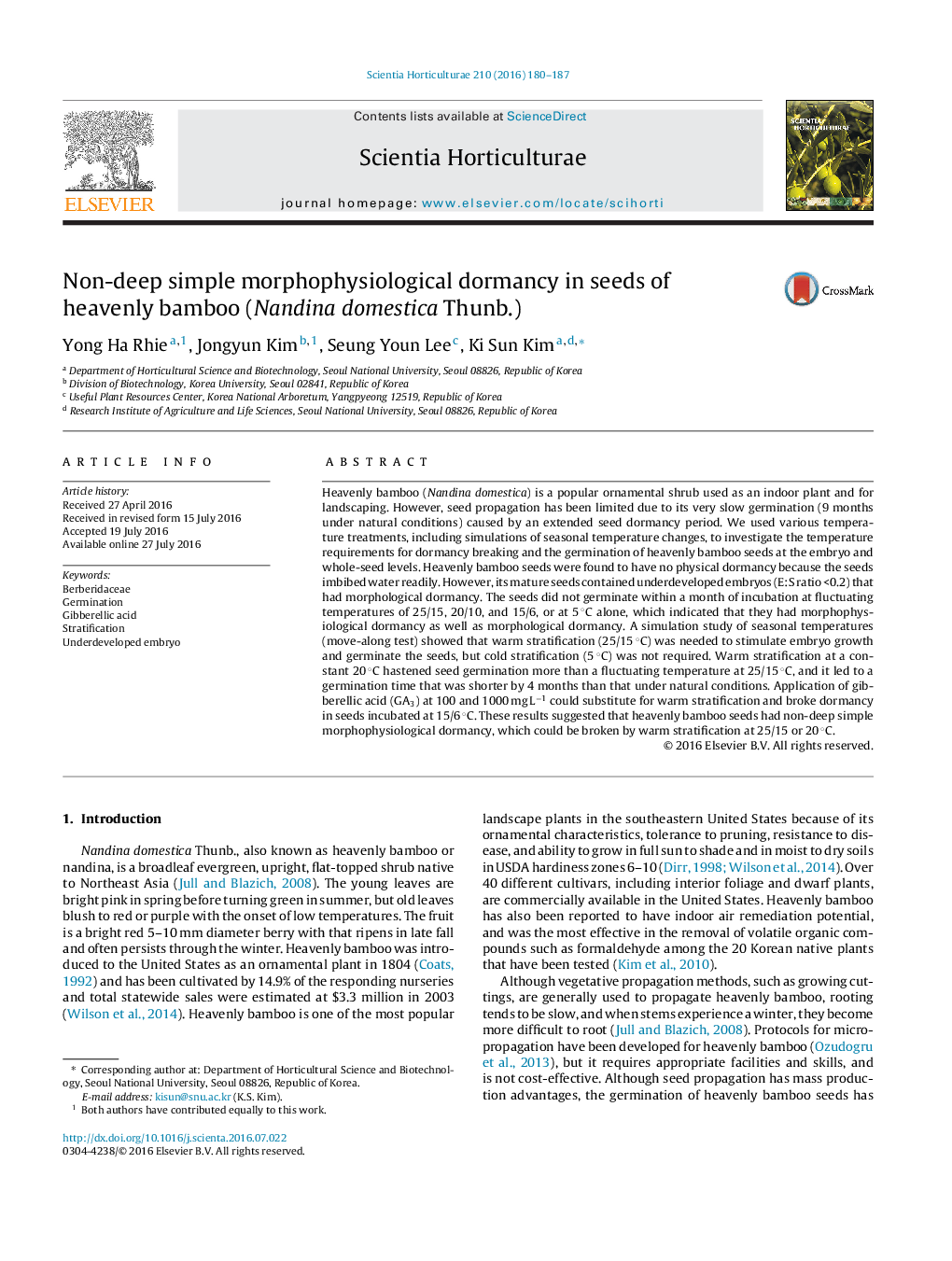| Article ID | Journal | Published Year | Pages | File Type |
|---|---|---|---|---|
| 4565927 | Scientia Horticulturae | 2016 | 8 Pages |
•Seeds of heavenly bamboo could be categorized in non-deep simple morphophysiological dormancy.•Heavenly bamboo seed did not require cold stratification, but warm stratification at 20 °C could break seed dormancy effectively.•100 and 1000 mg L−1 GA3 treatment could substitute for warm stratification for dormancy breaking of heavenly bamboo seeds.•Warm stratification shortened the seed germination of heavenly bamboo by 4 months compared with natural conditions.
Heavenly bamboo (Nandina domestica) is a popular ornamental shrub used as an indoor plant and for landscaping. However, seed propagation has been limited due to its very slow germination (9 months under natural conditions) caused by an extended seed dormancy period. We used various temperature treatments, including simulations of seasonal temperature changes, to investigate the temperature requirements for dormancy breaking and the germination of heavenly bamboo seeds at the embryo and whole-seed levels. Heavenly bamboo seeds were found to have no physical dormancy because the seeds imbibed water readily. However, its mature seeds contained underdeveloped embryos (E:S ratio <0.2) that had morphological dormancy. The seeds did not germinate within a month of incubation at fluctuating temperatures of 25/15, 20/10, and 15/6, or at 5 °C alone, which indicated that they had morphophysiological dormancy as well as morphological dormancy. A simulation study of seasonal temperatures (move-along test) showed that warm stratification (25/15 °C) was needed to stimulate embryo growth and germinate the seeds, but cold stratification (5 °C) was not required. Warm stratification at a constant 20 °C hastened seed germination more than a fluctuating temperature at 25/15 °C, and it led to a germination time that was shorter by 4 months than that under natural conditions. Application of gibberellic acid (GA3) at 100 and 1000 mg L−1 could substitute for warm stratification and broke dormancy in seeds incubated at 15/6 °C. These results suggested that heavenly bamboo seeds had non-deep simple morphophysiological dormancy, which could be broken by warm stratification at 25/15 or 20 °C.
